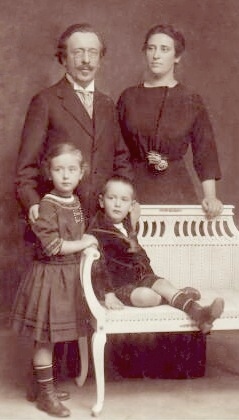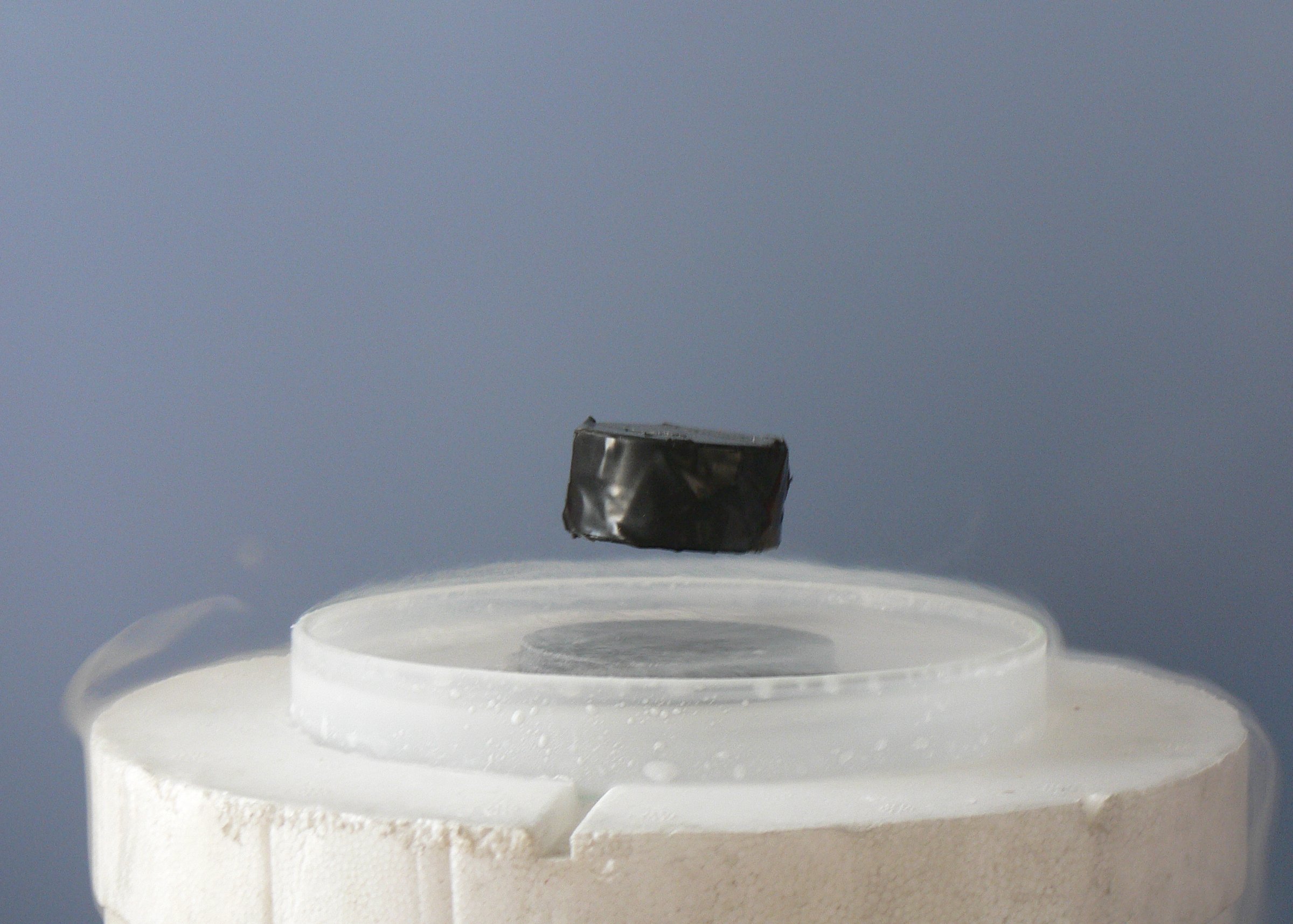|
Kapitza Institute
P. L. Kapitza Institute for Physical ProblemsNamed after Pyotr Kapitsa. (russian: –ò–Ω—Å—Ç–∏—Ç—É—Ç —Ñ–∏–∑–∏—á–µ—Å–∫–∏—Ö –ø—Ä–æ–±–ª–µ–º –∏–º–µ–Ω–∏ –ü. –õ. –ö–∞–ø–∏—Ü—ã –Ý–ê–ù) of the Russian Academy of Sciences. The institute was founded in 1934. The founder of the institute, Nobel laurate Pyotr Kapitsa served as its head for many years. The head of the theoretical division of the institute was Lev Landau. The primary direction of research at the institute is low temperature physics, such as superconductivity and superfluidity. The theoretical division later became Landau Institute for Theoretical Physics The L. D. Landau Institute for Theoretical Physics (russian: link=no, –ò–Ω—Å—Ç–∏—Ç—É—Ç —Ç–µ–æ—Ä–µ—Ç–∏—á–µ—Å–∫–æ–π —Ñ–∏–∑–∏–∫–∏ –∏–º–µ–Ω–∏ –õ. –î. –õ–∞–Ω–¥–∞—É (–ò–¢–§)) of the Russian Academy of Sciences is a research institution, located in the s .... Notes External linksInstitute web site Nuclear research institutes in Russia Physics institutes Research institutes in th ... [...More Info...] [...Related Items...] OR: [Wikipedia] [Google] [Baidu] |
Pyotr Kapitsa
Pyotr Leonidovich Kapitsa or Peter Kapitza (Russian: Пётр Леонидович Капица, Romanian: Petre Capița ( – 8 April 1984) was a leading Soviet physicist and Nobel laureate, best known for his work in low-temperature physics. Biography Kapitsa was born in Kronstadt, Russian Empire, to Bessarabian-Volhynian-born parents Leonid Petrovich Kapitsa (Romanian ''Leonid Petrovici Capița''), a military engineer who constructed fortifications, and Olga Ieronimovna Kapitsa from a noble Polish Stebnicki family. Besides Russian, the Kapitsa family also spoke Romanian. Kapitsa's studies were interrupted by the First World War, in which he served as an ambulance driver for two years on the Polish front. He graduated from the Petrograd Polytechnical Institute in 1918. His wife and two children died in the flu epidemic of 1918–19. He subsequently studied in Britain, working for over ten years with Ernest Rutherford in the Cavendish Laboratory at the University of Camb ... [...More Info...] [...Related Items...] OR: [Wikipedia] [Google] [Baidu] |
Russian Academy Of Sciences
The Russian Academy of Sciences (RAS; russian: –Ý–æ—Å—Å–∏ÃÅ–π—Å–∫–∞—è –∞–∫–∞–¥–µÃÅ–º–∏—è –Ω–∞—ÉÃÅ–∫ (–Ý–ê–ù) ''Ross√≠yskaya akad√©miya na√∫k'') consists of the national academy of Russia; a network of scientific research institutes from across the Russian Federation; and additional scientific and social units such as libraries, publishing units, and hospitals. Peter the Great established the Academy (then the St. Petersburg Academy of Sciences) in 1724 with guidance from Gottfried Leibniz. From its establishment, the Academy benefitted from a slate of foreign scholars as professors; the Academy then gained its first clear set of goals from the 1747 Charter. The Academy functioned as a university and research center throughout the mid-18th century until the university was dissolved, leaving research as the main pillar of the institution. The rest of the 18th century continuing on through the 19th century consisted of many published academic works from Academy scholars and a few Ac ... [...More Info...] [...Related Items...] OR: [Wikipedia] [Google] [Baidu] |
Lev Landau
Lev Davidovich Landau (russian: Лев Дави́дович Ланда́у; 22 January 1908 – 1 April 1968) was a Soviet- Azerbaijani physicist of Jewish descent who made fundamental contributions to many areas of theoretical physics. His accomplishments include the independent co-discovery of the density matrix method in quantum mechanics (alongside John von Neumann), the quantum mechanical theory of diamagnetism, the theory of superfluidity, the theory of second-order phase transitions, the Ginzburg–Landau theory of superconductivity, the theory of Fermi liquids, the explanation of Landau damping in plasma physics, the Landau pole in quantum electrodynamics, the two-component theory of neutrinos, and Landau's equations for ''S'' matrix singularities. He received the 1962 Nobel Prize in Physics for his development of a mathematical theory of superfluidity that accounts for the properties of liquid helium II at a temperature below (). Life Early years Landau was born ... [...More Info...] [...Related Items...] OR: [Wikipedia] [Google] [Baidu] |
Low Temperature Physics
In physics, cryogenics is the production and behaviour of materials at very low temperatures. The 13th IIR International Congress of Refrigeration (held in Washington DC in 1971) endorsed a universal definition of “cryogenics” and “cryogenic” by accepting a threshold of 120 K (or –153 °C) to distinguish these terms from the conventional refrigeration. This is a logical dividing line, since the normal boiling points of the so-called permanent gases (such as helium, hydrogen, neon, nitrogen, oxygen, and normal air) lie below 120K while the Freon refrigerants, hydrocarbons, and other common refrigerants have boiling points above 120K. The U.S. National Institute of Standards and Technology considers the field of cryogenics as that involving temperatures below -153 Celsius (120K; -243.4 Fahrenheit) Discovery of superconducting materials with critical temperatures significantly above the boiling point of nitrogen has provided new interest in reliable, low cost methods ... [...More Info...] [...Related Items...] OR: [Wikipedia] [Google] [Baidu] |
Superconductivity
Superconductivity is a set of physical properties observed in certain materials where electrical resistance vanishes and magnetic flux fields are expelled from the material. Any material exhibiting these properties is a superconductor. Unlike an ordinary metallic conductor, whose resistance decreases gradually as its temperature is lowered even down to near absolute zero, a superconductor has a characteristic critical temperature below which the resistance drops abruptly to zero. An electric current through a loop of superconducting wire can persist indefinitely with no power source. The superconductivity phenomenon was discovered in 1911 by Dutch physicist Heike Kamerlingh Onnes. Like ferromagnetism and atomic spectral lines, superconductivity is a phenomenon which can only be explained by quantum mechanics. It is characterized by the Meissner effect, the complete ejection of magnetic field lines from the interior of the superconductor during its transitions into the sup ... [...More Info...] [...Related Items...] OR: [Wikipedia] [Google] [Baidu] |
Superfluidity
Superfluidity is the characteristic property of a fluid with zero viscosity which therefore flows without any loss of kinetic energy. When stirred, a superfluid forms vortices that continue to rotate indefinitely. Superfluidity occurs in two isotopes of helium (helium-3 and helium-4) when they are liquefied by cooling to cryogenic temperatures. It is also a property of various other exotic State of matter, states of matter theorized to exist in astrophysics, high-energy physics, and theories of quantum gravity. The theory of superfluidity was developed by Soviet theoretical physicists Lev Landau and Isaak Khalatnikov. Superfluidity is often coincidental with Bose–Einstein condensate, Bose–Einstein condensation, but neither phenomenon is directly related to the other; not all Bose–Einstein condensates can be regarded as superfluids, and not all superfluids are Bose–Einstein condensates. Superfluidity of liquid helium Superfluidity was discovered in helium-4 by Pyotr ... [...More Info...] [...Related Items...] OR: [Wikipedia] [Google] [Baidu] |
Landau Institute For Theoretical Physics
The L. D. Landau Institute for Theoretical Physics (russian: link=no, –ò–Ω—Å—Ç–∏—Ç—É—Ç —Ç–µ–æ—Ä–µ—Ç–∏—á–µ—Å–∫–æ–π —Ñ–∏–∑–∏–∫–∏ –∏–º–µ–Ω–∏ –õ. –î. –õ–∞–Ω–¥–∞—É (–ò–¢–§)) of the Russian Academy of Sciences is a research institution, located in the small town of Chernogolovka near Moscow (there is also a subdivision in Moscow, on the territory of the P. L. Kapitza Institute for Physical Problems). History The Landau Institute was formed in 1964 to keep the ''Landau school'' alive after the tragic car accident of Lev D. Landau. Since its foundation, the institute grew rapidly to about one hundred scientists, becoming one of the worldwide best-known and leading institutes for theoretical physics. Unlike many other scientific centers in Russia, the Landau Institute had the strength to cope with the crisis of the nineties in the last century. Although about one half of the scientists accepted positions at leading scientific centers and universities abroad, most of them kept ties with ... [...More Info...] [...Related Items...] OR: [Wikipedia] [Google] [Baidu] |
Nuclear Research Institutes In Russia
*
*
{{Disa ...
Nuclear may refer to: Physics Relating to the nucleus of the atom: * Nuclear engineering *Nuclear physics *Nuclear power *Nuclear reactor *Nuclear weapon *Nuclear medicine *Radiation therapy *Nuclear warfare Mathematics *Nuclear space *Nuclear operator *Nuclear congruence *Nuclear C*-algebra Biology Relating to the nucleus of the cell: * Nuclear DNA Society * Nuclear family, a family consisting of a pair of adults and their children Music * "Nuclear" (band), group music. * "Nuclear" (Ryan Adams song), 2002 *"Nuclear", a song by Mike Oldfield from his ''Man on the Rocks'' album * ''Nu.Clear'' (EP) by South Korean girl group CLC See also *Nucleus (other) *Nucleolus *Nucleation *Nucleic acid *Nucular ''Nucular'' is a common, proscribed pronunciation of the word "nuclear". It is a rough phonetic spelling of . The ''Oxford English Dictionary''s entry dates the word's first published appearance to 1943. Dictionary notes This is one of two con ... [...More Info...] [...Related Items...] OR: [Wikipedia] [Google] [Baidu] |
Physics Institutes
Physics is the natural science that studies matter, its fundamental constituents, its motion and behavior through space and time, and the related entities of energy and force. "Physical science is that department of knowledge which relates to the order of nature, or, in other words, to the regular succession of events." Physics is one of the most fundamental scientific disciplines, with its main goal being to understand how the universe behaves. "Physics is one of the most fundamental of the sciences. Scientists of all disciplines use the ideas of physics, including chemists who study the structure of molecules, paleontologists who try to reconstruct how dinosaurs walked, and climatologists who study how human activities affect the atmosphere and oceans. Physics is also the foundation of all engineering and technology. No engineer could design a flat-screen TV, an interplanetary spacecraft, or even a better mousetrap without first understanding the basic laws of physics. (. ... [...More Info...] [...Related Items...] OR: [Wikipedia] [Google] [Baidu] |
Research Institutes In The Soviet Union
Research is "creative and systematic work undertaken to increase the stock of knowledge". It involves the collection, organization and analysis of evidence to increase understanding of a topic, characterized by a particular attentiveness to controlling sources of bias and error. These activities are characterized by accounting and controlling for biases. A research project may be an expansion on past work in the field. To test the validity of instruments, procedures, or experiments, research may replicate elements of prior projects or the project as a whole. The primary purposes of basic research (as opposed to applied research) are documentation, discovery, interpretation, and the research and development (R&D) of methods and systems for the advancement of human knowledge. Approaches to research depend on epistemologies, which vary considerably both within and between humanities and sciences. There are several forms of research: scientific, humanities, artistic, economi ... [...More Info...] [...Related Items...] OR: [Wikipedia] [Google] [Baidu] |
Nuclear Technology In The Soviet Union
*
*
{{Disa ...
Nuclear may refer to: Physics Relating to the nucleus of the atom: * Nuclear engineering *Nuclear physics *Nuclear power *Nuclear reactor *Nuclear weapon *Nuclear medicine *Radiation therapy *Nuclear warfare Mathematics *Nuclear space *Nuclear operator *Nuclear congruence *Nuclear C*-algebra Biology Relating to the nucleus of the cell: * Nuclear DNA Society * Nuclear family, a family consisting of a pair of adults and their children Music * "Nuclear" (band), group music. * "Nuclear" (Ryan Adams song), 2002 *"Nuclear", a song by Mike Oldfield from his ''Man on the Rocks'' album * ''Nu.Clear'' (EP) by South Korean girl group CLC See also *Nucleus (other) *Nucleolus *Nucleation *Nucleic acid *Nucular ''Nucular'' is a common, proscribed pronunciation of the word "nuclear". It is a rough phonetic spelling of . The ''Oxford English Dictionary''s entry dates the word's first published appearance to 1943. Dictionary notes This is one of two con ... [...More Info...] [...Related Items...] OR: [Wikipedia] [Google] [Baidu] |




